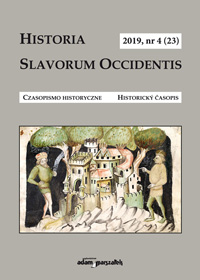Parlament a parlamentarismus v budování a proměnách československé státnosti
Parliament and parliamentarism in building and transforming Czechoslovak statehood
Author(s): Ondřej Felcman, Tomáš HradeckýSubject(s): History, Recent History (1900 till today)
Published by: Wydawnictwo Adam Marszałek
Keywords: Czechoslovakia; statehood; parliamentary movement; National Assembly; constitution; federation; Interwar period; 1960s
Summary/Abstract: The authors’ intention is to present the activities and operation of the Czechoslovak Parliament – the National Assembly – and to determine the extent of its influence on the origin of the Czechoslovak state, its forms and transformations. With the exception of the German occupation, as the legislature of the Czechoslovak Republic, the National Assembly played an important role in affecting its republican and democratic character, especially during the Interwar period and in a short interval in the 1960s during the Prague Spring in 1968. The study presents these two important stages of the formation of the Czechoslovak state in more detail. In the Interwar period (1918–1938), the Czechoslovak statehood demonstrated features typical of the pluralist parliamentary democracy, respecting party representation of national minorities, with developed parliamentary power since the mid – 1920s. In the period in question, the Parliament was defined as an independent legislature representing an element of democracy in the Czechoslovak Republic. On the other hand, the National Assembly was a centralist body which did not allow disengaging its powers among any regional legislatures. During the period of the First Republic, the disputes over the autonomous elements of the individual countries of Czechoslovakia represented an important crisis of statehood faced by the Parliament. Prior to the Munich crisis, the Parliament was an institution witnessing numerous political discords and disputes but it was never disregarded by any type of superior power or forced to undertake totalitarian activities, as was the case in the 1930s in other Central European parliaments. In the 1960s, a new definition of legislature was coined and announced in 1960 by adopting socialism in Czechoslovakia in a newly ratified socialist constitution. In the constitution, the Communist Party represented the leadership in the state order; at the same time, the Parliament regained its status of the highest echelon of state power. However, in reality its enforcement was guarded by the monopoly of the Communist regime. At the same time, the constitution greatly weakened Slovak autonomy, which, despite all attempts at reinforcement after 1964, represented an imperfect implementation of the legitimate right of the Slovak nation to its own statehood. This requirement was recognized after January 1968 when a radical democratization movement was launched in Czechoslovakia, seeking to create its own humanly-oriented socialist order. To some extent, the reforms of the Prague Spring in 1968 revolved around efforts to create a new form of common statehood between Czechs and Slovaks in the form of a federation. One of the prerequisites for negotiating the form of the federation was official establishment of the Czech statehood with a corresponding political representation in the form of the Czech National Council.
Journal: Historia Slavorum Occidentis
- Issue Year: 23/2019
- Issue No: 4
- Page Range: 32-71
- Page Count: 39
- Language: Czech

